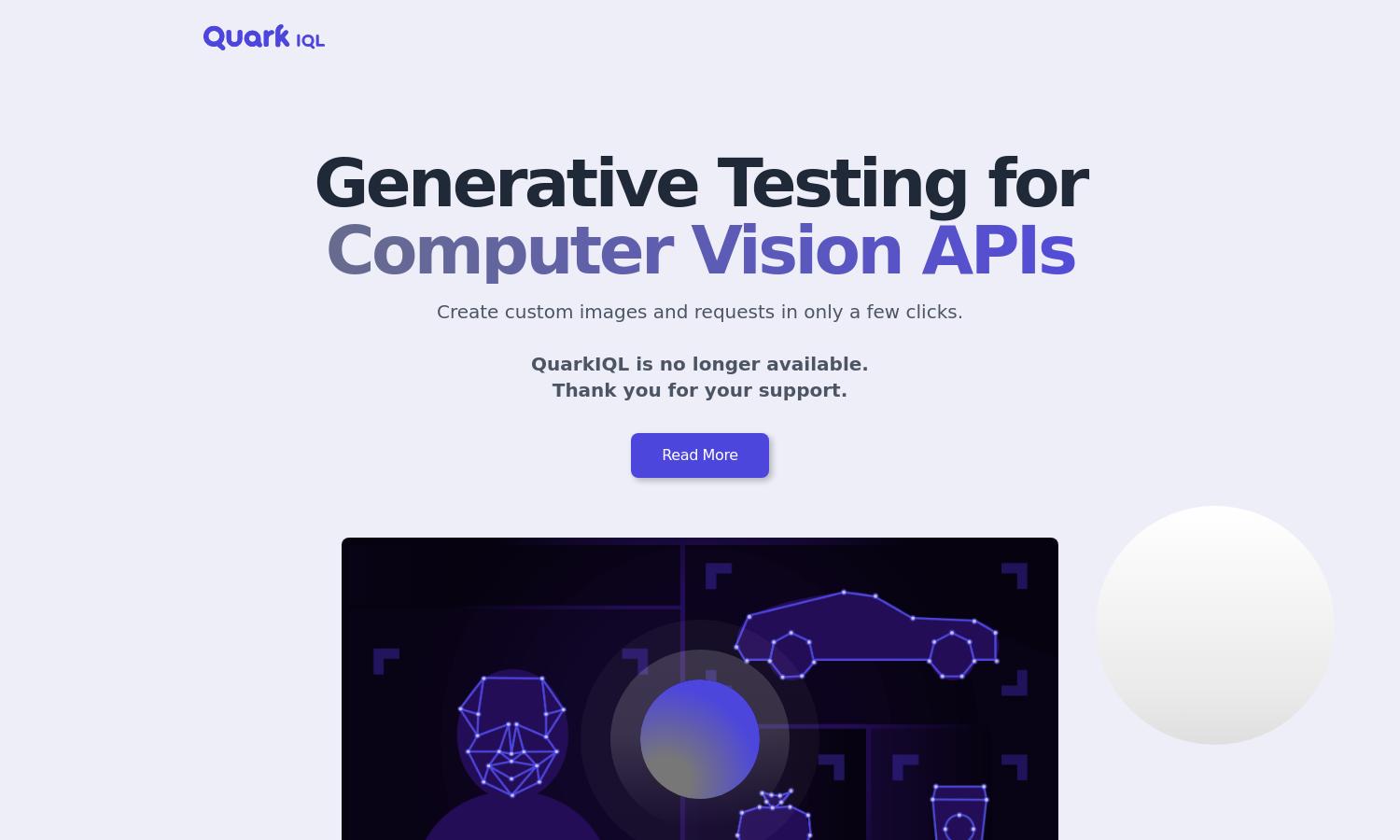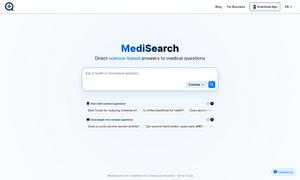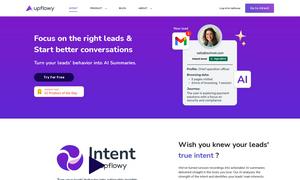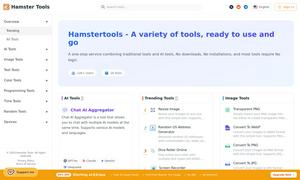QuarkIQL

About QuarkIQL
QuarkIQL was designed for developers seeking efficient generative testing for computer vision APIs. Users could quickly create custom test images by typing prompts, leveraging advanced image diffusion models. With comprehensive logging of queries, QuarkIQL enhanced the testing workflow, enabling more effective experimentation and development.
QuarkIQL offers no longer available pricing plans for API testing services. Users once accessed various subscription tiers designed to maximize testing efficiency with powerful features. Though it's no longer operational, users valued upgrading for dedicated support, increased capabilities, and seamless integration.
QuarkIQL provided an intuitive user interface, enabling effortless navigation and image creation. Its design emphasized user experience, allowing developers to quickly access essential features and manage queries effectively. The layout ensured a smooth browsing experience, enhancing productivity for users engaged in API testing.
How QuarkIQL works
Users began their interaction with QuarkIQL by signing up and completing a straightforward onboarding process. Once logged in, they could easily navigate the user-friendly interface to create custom images by entering prompts. With access to powerful image diffusion models, users could generate and log their queries for efficient testing.
Key Features for QuarkIQL
Custom Image Generation
QuarkIQL's custom image generation feature allows users to effortlessly create tailored test images by simply entering text prompts. This unique capability streamlines the image testing process, providing developers with precise visuals needed for effective computer vision API testing.
Comprehensive Query Logging
The comprehensive query logging feature of QuarkIQL enables users to track all their testing activities effectively. Users could revisit previous queries to refine their experiments, making it easier to build on past work and enhancing the overall development workflow.
Powerful Diffusion Models
QuarkIQL's powerful diffusion models set it apart, providing advanced algorithms for generating realistic images. This unique feature allows developers to create high-quality imagery tailored to their testing needs, significantly improving the accuracy and reliability of their computer vision API assessments.
You may also like:








